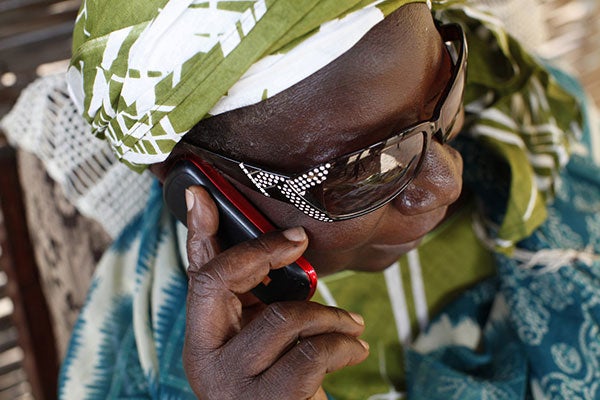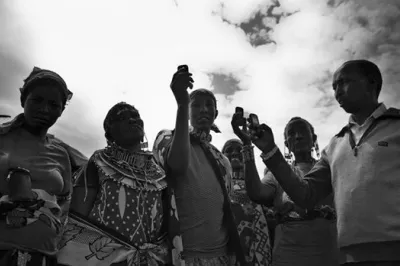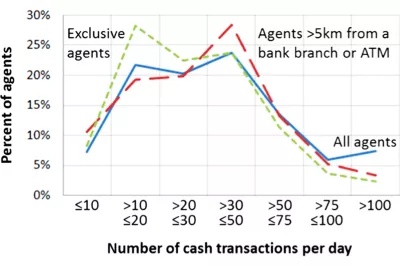Is Tanzania Ready for Interoperability in Mobile Money?
Interoperability potentially offers great benefits to the mobile financial services market. It allows operators to offer customers more flexible payment options which could increase the overall number of transactions and velocity of money in the ecosystem. For regulators it provides an opportunity to draw more cash into the formal financial system. For customers it should result in more accessible and flexible services. Last, but not least, it offers an opportunity to further advance financial inclusion.
Yet, so far there have been few attempts at interoperability in mobile financial services markets. One reason for this is obvious. There are significant challenges involved in any initiative that brings competing market players together and the road to success is far from easy. Another reason is the still nascent state of many markets. While it may be too early for interoperability in some markets, others, like Tanzania, are definitely ready. Recent positive developments are clear evidence of this.

In Tanzania, the four main MNOs in the mobile money space - Airtel, Vodacom, Tigo and Zantel - have come together with two of the largest banks - CRDB Bank and National Microfinance Bank - as well as the Bank of Tanzania, to craft a set of operational regulations for interoperability. Interoperability here is defined as money moving between mobile financial services accounts of different MNOs, and between mobile money accounts and bank accounts.
This is the first industry-led initiative to determine standards for interoperable mobile money transactions in Sub-Saharan Africa, and is proof of a certain maturity in the market. A recent market survey commissioned by IFC, who is hosting the initiative in the capacity of a neutral broker, also revealed a demand for interoperability, including at the agent level, among both customers and agents in Tanzania.
Nine out of ten customers surveyed said they would use mobile financial services to send money to any network if they could; however, only about half of them were willing to pay extra for such a service. Over 40 percent of respondents said that in the previous three month, they had to visit multiple agents to cash in or cash out, a problem which would go away with interoperability due to the possibility for improved agent liquidity management. Importantly, a large proportion of users said they would use mobile financial services more often if they could cash in and cash out at any agent.
The large majority of agents surveyed reported that they would be interested in being able to serve customers with mobile money accounts from other providers, although less than half said they would be willing to accept less commission for doing so. Agents are primarily interested in being interoperable because they believe it would help them attract more business and more easily manage liquidity and e-float.
Throughout the supply chain, there is thus a clear rationale for interoperability as well as an expressed desire for the same. Does this mean it will happen? There’s good reason to believe so.
The main challenge is to align the interests of the competing stakeholders and to get them to talk to each other on a regular basis. Through an extensive engagement process that has involved training, expert-facilitated workshops and monthly industry meetings, we’ve seen the industry players in Tanzania initiate discussions and make good progress.
IFC, with the Tanzanian mobile money industry, is now in the process of finalizing the first set of rules for person-to-person (P2P) transactions. These rules deal with participation criteria, governance, operational and technical requirements, dispute resolution, clearing and settlement, reporting, pricing principles and risk management. The market players have expressed an interest in discussing agent or Cash-in/Cash-out (CICO) interoperability as a next step, previously a no-go area.
An active partner in the discussions is the Bank of Tanzania, which has been consistently engaged and supportive of a market-based solution for interoperability. A favorable regulatory environment is key to the process. The Tanzania Communications Regulatory Authority and the Fair Competition Commission provided input at the initial stages, and external support comes from GSMA, CGAP and donor partners.
What makes this possible? Recent statistics show that Tanzania is experiencing a mobile money revolution almost as remarkable as that of neighboring Kenya. In just four years, from 2009 to 2013, the usage of non-bank formal financial services, mainly mobile financial services, increased from just under 7% to almost 44%, bringing the rate of financial inclusion from around 16% to close to 58% (FSDT, 2013).
As mobile money markets mature and MNOs are reaching saturation in terms of converting voice customers into mobile money users, the case for interoperability is strengthened as the only feasible way of growing revenue by increasing the number and velocity of transactions. Ultimately, everyone stands to gain.




Add new comment